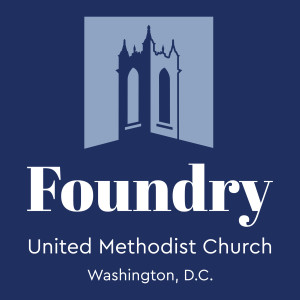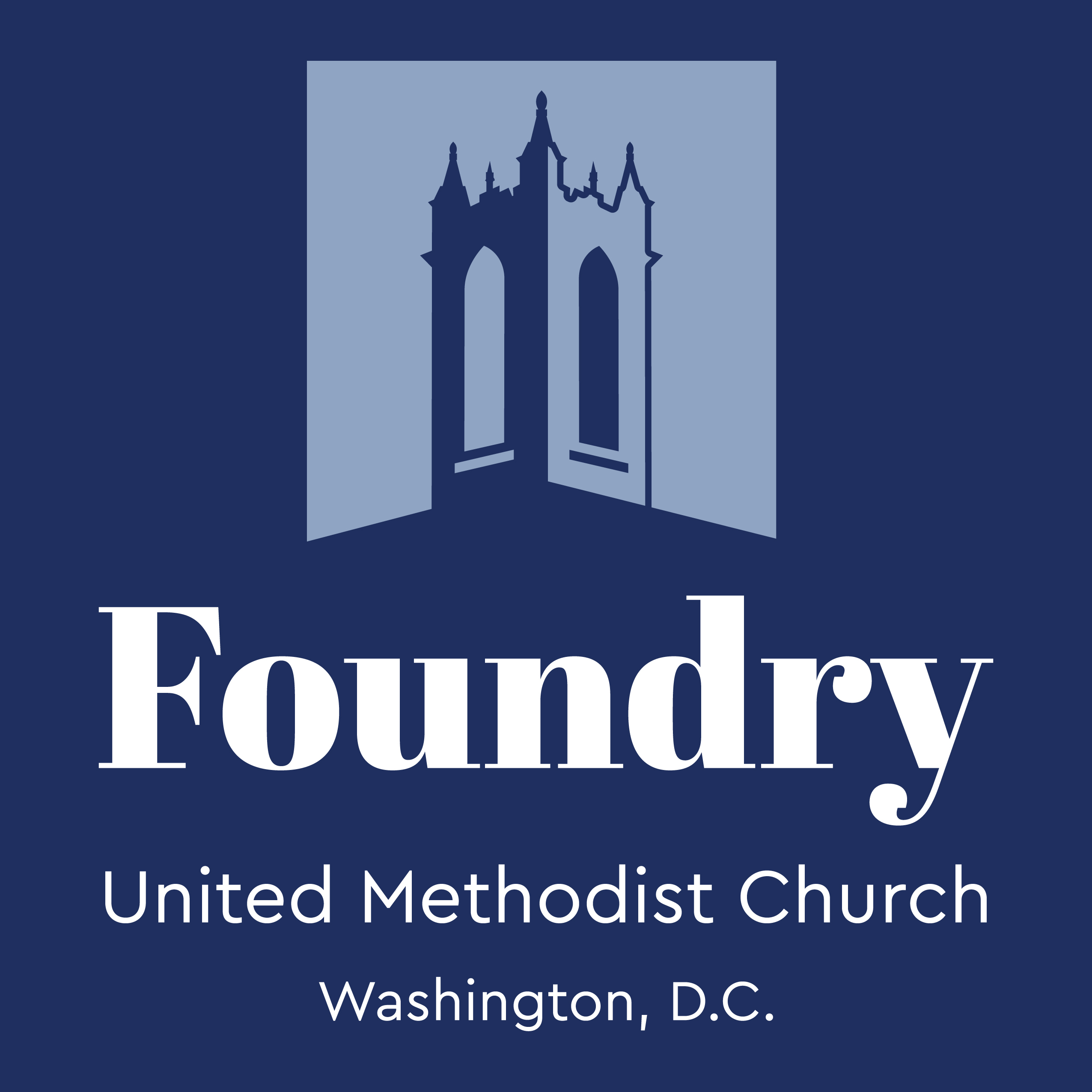Episodes

Monday Sep 12, 2022
Missing Pieces - September 11th, 2022
Monday Sep 12, 2022
Monday Sep 12, 2022
Missing Pieces
A sermon preached by Ginger E. Gaines-Cirelli at Foundry UMC September 11th, 2022. “Mosaic, Piecing It Together" series.
Text: LUKE 15:1-10
https://foundryumc.org/archive

Monday Sep 05, 2022
How Much Does This Piece Cost? - September 4th, 2022
Monday Sep 05, 2022
Monday Sep 05, 2022
How Much Does This Piece Cost?
A sermon preached by Ginger E. Gaines-Cirelli at Foundry UMC September 4th, 2022. “Mosaic, Piecing It Together" series.
Text: LUKE 14:25-33
https://foundryumc.org/archive

Monday Aug 29, 2022
Worms With Jobs - August 28th, 2022
Monday Aug 29, 2022
Monday Aug 29, 2022
Worms With Jobs
A sermon preached by Ben Roberts at Foundry UMC August 28th, 2022. “Let There Be Joy” series.
Text: JONAH 4
https://foundryumc.org/archive

Monday Aug 22, 2022
The Luckiest Prophet Ever - August 21st, 2022
Monday Aug 22, 2022
Monday Aug 22, 2022
The Luckiest Prophet Ever
A sermon preached by Ginger E. Gaines-Cirelli at Foundry UMC August 7th, 2022. “Let There Be Joy” series.
Text: JONAH 3

Sunday Aug 14, 2022
Well, Well, Whale - August 14th, 2022
Sunday Aug 14, 2022
Sunday Aug 14, 2022
Well, Well, Whale
A sermon preached by Jonathan Brown at Foundry UMC August 7th, 2022. “Let There Be Joy” series.
Text: JONAH 1:17-2:10

